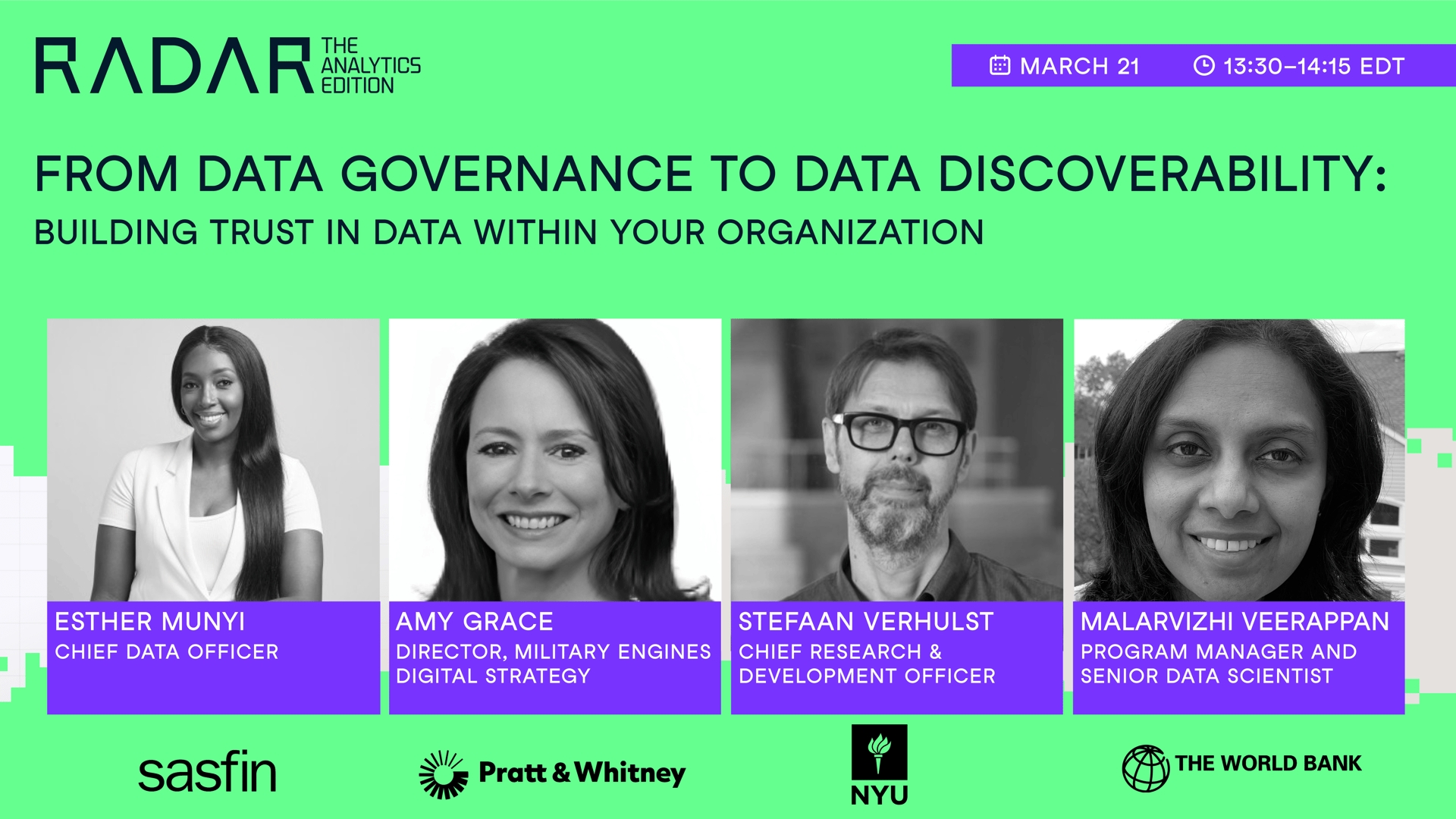Accéder au contenu principalPour les entreprises





Haut-parleurs
Formation de 2 personnes ou plus ?
Donnez à votre équipe l’accès à la bibliothèque DataCamp complète, avec des rapports centralisés, des missions, des projets et bien plus encoreConnexe
webinar
From Data Governance to Data Discoverability: Building Trust in Data Within Your Organization
In this session, industry leaders share strategies for improving data quality, fostering a culture of trust around data, and balancing robust governance with the need for accessible, high-quality data.webinar
RADAR: The Analytics Edition - The Art of Data Storytelling: Driving Impact with Analytics
In this session, three industry leaders will shed light on the art of blending analytics with storytelling, a key to making data-driven insights both understandable and influential within any organization.webinar
RADAR: The Analytics Edition - Scaling Data ROI: Driving Analytics Adoption Within Your Organization
In this session, Laura Gent Felker, Tiffany Perkins-Munn, and Omar Khawaja will explore best practices when it comes to scaling analytics adoption within the wider organization.webinar
RADAR: The Analytics Edition - Building a Learning Culture for Analytics Functions
In the session, Russell Johnson, Denisse Groenendaal-Lopez and Mark Stern address the importance of fostering a learning environment for driving success with analytics.webinar
Radar—Keynote—Building the Data-Driven Workforce of the Future
The challenges individuals and organizations face in the era of data fluency.webinar
Radar Data & AI Literacy Edition: Laying the Foundations: Data Quality in the Age of AI
Join Susan Walsh and Scott Taylor as they walk us through how data leaders can make meaningful gains on their data quality initiatives, and the nuances of scaling a data quality initiative with AI in mind.Join 5000+ companies and 80% of the Fortune 1000 who use DataCamp to upskill their teams.
Loved by thousands of companies




